Sri Lanka elected Marxist-leaning Anura Kumara Dissanayake as its new president on Sunday, putting faith in the 55-year-old’s pledge to fight corruption and bolster a fragile economic recovery following its worst financial crisis in decades.
Dissanayake, who does not possess political lineage like some of his rivals in the presidential election, led from start to finish during the counting of ballots, knocking out incumbent President Ranil Wickremesinghe and opposition leader Sajith Premadasa to become Sri Lanka’s 10th president.
The election was also a referendum on Wickremesinghe, who led the heavily indebted nation’s fragile economic recovery from a meltdown in 2022 but the austerity measures that were key to this recovery hindered his bid to return to office. He finished third with 17 per cent of the vote.
Dissanayake polled 5.6 million or 42.3pc of the votes, a massive boost to the 3pc he managed in the last presidential election in 2019. Premadasa was second at 32.8pc after the first round of counting of ballots on Sunday.
It was the first time in Sri Lanka’s history that the presidential race was decided by a second round of counting after the top two candidates failed to win the mandatory 50pc of votes to be declared winner.
This is Sri Lanka’s first election since the Indian Ocean nation’s economy buckled in 2022 under a severe foreign exchange shortage, leaving it unable to pay for imports of essentials including fuel, medicine and cooking gas. Protests forced then-President Gotabaya Rajapaksa to flee and later resign.
“The election result clearly shows the uprising that we witnessed in 2022 is not over,” said Pradeep Peiris, a political scientist at University of Colombo.
“People have voted in line with those aspirations to have different political practices and political institutions. AKD” — as Dissanayake is known — “reflects these aspirations and people have rallied around him.”
Dissanayake, 55, presented himself as the candidate of change for those reeling under austerity measures linked to a $2.9 billion International Monetary Fund (IMF) bailout, promising to dissolve parliament within 45 days of taking office for a fresh mandate for his policies in general elections.
He has worried investors with a manifesto pledging to slash taxes in the island nation, which could impact IMF fiscal targets, and a $25 billion debt rework. But during the campaign, he took a more conciliatory approach, saying any changes would be undertaken in consultation with the IMF and that he was committed to ensuring repayment of debt.
Premadasa also pledged to renegotiate the contours of the IMF deal.
Grinding poverty for millions
Buttressed by the IMF deal, Sri Lanka’s economy has posted a tentative recovery — it is expected to grow this year for the first time in three years and inflation has collapsed to 0.5pc from a crisis peak of 70pc.
But the continued high cost of living was a critical issue for many voters, and millions remain mired in poverty, with many pinning hopes of a better future on the next leader.
Voting was peaceful, although police declared a curfew across the island nation until noon (0630 GMT) as a precaution while vote counting continued.
About 75pc of the 17 million eligible voters cast their ballots, according to the commission.
Dissanayake, known for stirring speeches, ran as a candidate for the National People’s Power alliance, which includes his Marxist-leaning Janatha Vimukthi Peremuna party, which has traditionally backed stronger state intervention, lower taxes and more closed market economic policies.
Although JVP has just three seats in parliament, Dissanayake was boosted by his promises of tough anti-corruption measures and more pro-poor policies. He drew big crowds at rallies, calling on Sri Lankans to leave behind the suffering of the crisis.
Premadasa, 57, entered politics after his father, President Ranasinghe Premadasa, was killed in a suicide bombing in 1993. The younger Premadasa polled 42pc of the votes in 2019 to finish second, behind Rajapaksa, in the last presidential election.
Premadasa’s centre-left party has promised tax changes to reduce living costs. Support from farming communities in north and central Sri Lanka helped him close the gap on Dissanayake as counting progressed.
The winner will have to ensure Sri Lanka sticks with the IMF programme until 2027 to get its economy on a stable growth path, reassure markets, repay debt, attract investors and help a quarter of its people climb out of poverty.


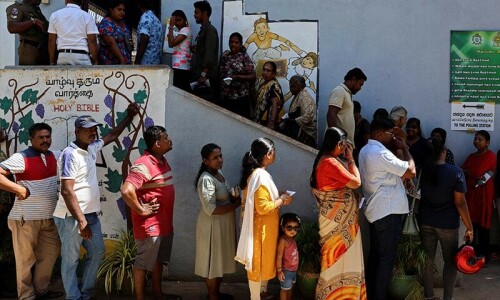
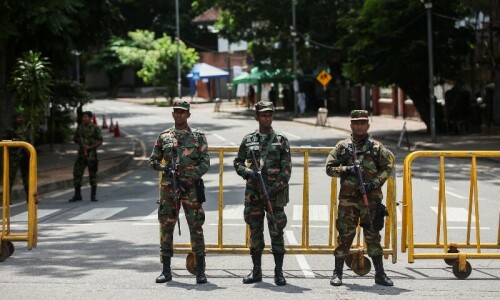
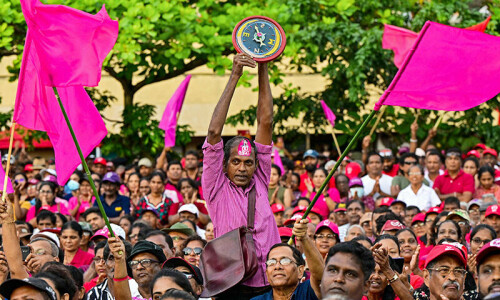












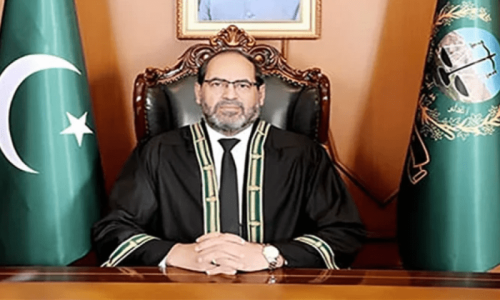
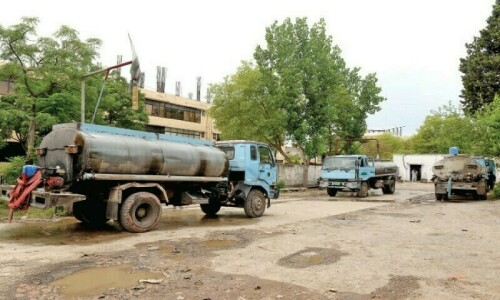





























Dear visitor, the comments section is undergoing an overhaul and will return soon.